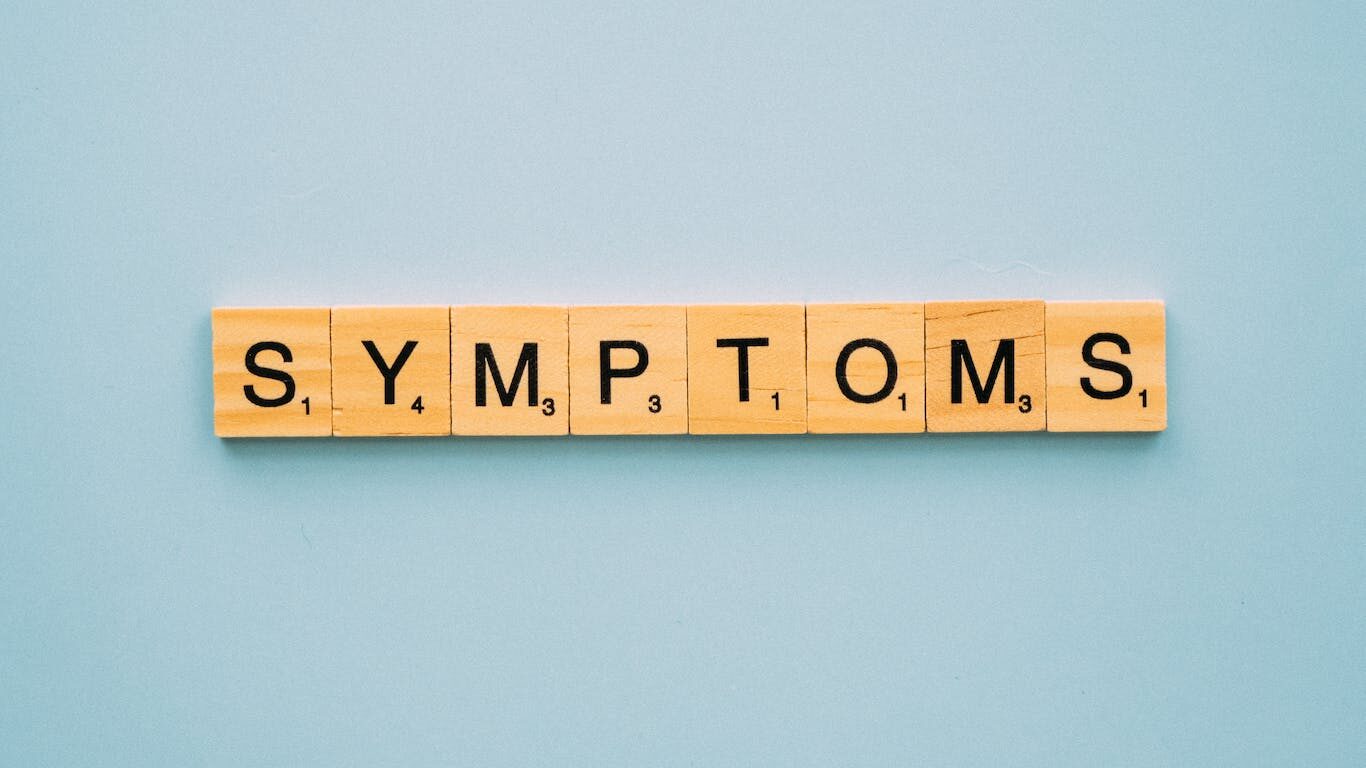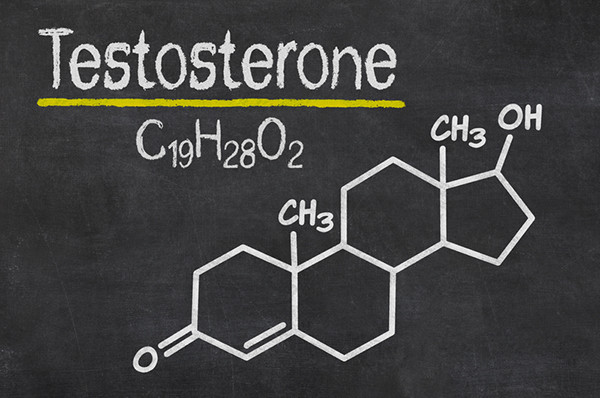How to Achieve Hormone Balance and Restore Your Testosterone Naturally

Understanding Hormone Imbalance: The Basics

Hormones play a vital role in maintaining the overall health and functioning of the body. These chemical messengers are responsible for regulating various bodily processes, such as metabolism, growth and development, mood, and reproduction. However, an imbalance in hormone levels can lead to numerous health issues and disrupt the normal functioning of the body.
Hormone imbalance can be caused by a variety of factors, including age, genetics, stress, dietary choices, and certain medical conditions. For women, hormonal changes during puberty, menstruation, pregnancy, and menopause can often lead to imbalances. Similarly, men can also experience hormonal fluctuations as they age, particularly with the decrease in testosterone levels. It is important to recognize the symptoms of hormone imbalance in order to seek appropriate treatment and restore balance to the body’s hormonal system.
Recognizing the Symptoms of Hormone Imbalance

Hormone imbalance can manifest itself in a variety of symptoms, both physical and emotional. It is important to pay attention to these signs as they can indicate underlying hormonal issues that may require medical intervention. One common symptom of hormone imbalance is unexplained weight gain or difficulty losing weight, despite efforts to maintain a healthy diet and exercise regimen. This can be particularly frustrating for individuals who have always had a relatively stable weight. Other physical symptoms may include fatigue, hair loss, dry skin, and changes in libido.
In addition to physical symptoms, hormone imbalance can also affect a person’s mental and emotional well-being. Mood swings, irritability, anxiety, and depression may all be indicators of hormonal issues. These emotional symptoms can be particularly challenging to manage, as they can significantly impact a person’s quality of life and relationships. It is important to remember that everyone’s experience with hormone imbalance may be different, and not all symptoms will be present in every individual. If you suspect a hormone imbalance, it is crucial to consult with a healthcare professional who can properly diagnose and treat the underlying cause.
The Role of Testosterone in the Body

Testosterone is a hormone that plays a crucial role in the male body. Produced primarily in the testes, it serves multiple functions, influencing physical development, sexual characteristics, and overall well-being. This hormone is responsible for the deepening of the voice during puberty and the growth of facial and body hair. Testosterone also promotes muscle growth, bone strength, and the production of red blood cells.
Beyond its evident impact on physical traits, testosterone is fundamental to maintaining reproductive health. It is a key player in regulating sex drive and fertility. Furthermore, testosterone contributes to the production of sperm, playing a crucial role in the process of reproduction. In addition, this hormone affects mood, cognitive function, and energy levels, impacting a man’s overall quality of life. Adequate levels of testosterone are vital for optimal physiological and psychological well-being.
To learn more about the intricate role of testosterone in the body, continue reading our comprehensive guide. We will delve into the factors that influence testosterone levels, methods of testing, and various treatment options available for those experiencing imbalances. Whether you are seeking to understand the functions of this hormone or are looking for ways to optimize your testosterone levels, this section will provide valuable insights and actionable strategies. Stay informed to make informed decisions about your health.
Factors That Can Disrupt Hormone Balance
1. Environmental Chemicals and Toxins:
Our modern environment is filled with various chemicals and toxins that can interfere with hormonal regulation. These include pesticides, plastics, industrial chemicals, and synthetic hormones found in personal care products. Research has shown that exposure to these substances can disrupt the delicate balance of hormones, leading to a wide range of health problems. For example, certain pesticides have been found to mimic estrogen in the body, causing hormonal imbalances in both men and women. Additionally, exposure to bisphenol A (BPA), a chemical commonly used in plastics, has been linked to disruptions in thyroid function and reproductive hormones.
2. Chronic Stress:
Stress is a normal part of life, but when it becomes chronic, it can have a profound impact on hormone regulation. When we experience stress, our body releases cortisol, a hormone that helps us cope with the perceived threat. However, prolonged stress can lead to a dysregulation of cortisol levels, leading to imbalances in other hormones as well. Chronic stress has been associated with disrupted thyroid function, decreased testosterone levels in men, and irregular menstrual cycles in women. It can also affect other hormone-producing glands, such as the adrenal glands, which are responsible for producing cortisol. As a result, chronic stress can have far-reaching effects on overall hormone balance.
Factors That Can Disrupt Hormone Balance:
– Environmental Chemicals and Toxins:
– Pesticides, plastics, industrial chemicals, and synthetic hormones in personal care products can interfere with hormonal regulation.
– Certain pesticides mimic estrogen, causing imbalances in both men and women.
– Exposure to bisphenol A (BPA), commonly used in plastics, disrupts thyroid function and reproductive hormones.
– Chronic Stress:
– Prolonged stress can lead to dysregulation of cortisol levels, affecting other hormones as well.
– Disrupted thyroid function, decreased testosterone levels in men, and irregular menstrual cycles in women are associated with chronic stress.
– Adrenal glands responsible for producing cortisol can be affected by chronic stress.
Incorporating a Healthy Diet for Hormone Balance
A healthy diet plays a crucial role in maintaining hormone balance in the body. Certain nutrients are essential for the production and regulation of hormones, and incorporating these into your diet can have a positive impact on your overall hormone levels.
First and foremost, it is important to ensure an adequate intake of protein. Proteins are the building blocks of hormones, and without sufficient protein in your diet, hormone production may be compromised. Good sources of protein include lean meats, fish, eggs, and legumes. Additionally, incorporating healthy fats into your diet is important for hormone balance. Omega-3 fatty acids, found in fatty fish, flaxseeds, and walnuts, are particularly beneficial for hormone health. These fats contribute to the production of anti-inflammatory hormones and help to regulate hormone levels in the body.
Certainly! Here’s the information presented in a table format with columns and rows:
| Principle | Benefits | Source Link |
|---|---|---|
| Incorporating Whole Foods | Provides essential nutrients and fiber for overall hormonal health | Effect of Whole Foods on Hormonal Balance |
| Balanced Macronutrient Intake | Supports stable blood sugar levels and hormone production | Macronutrient Intake and Hormone Regulation |
| Omega-3 Fatty Acids for Hormones | Crucial role in hormone synthesis and inflammation regulation | Omega-3 Fatty Acids and Hormones |
| Role of Fiber in Hormonal Balance | Supports digestive health and helps regulate estrogen levels | Dietary Fiber and Estrogen Levels |
| Plant-Based Diets and Hormonal Health | May positively impact hormone levels and reduce inflammation | Plant-Based Diets and Hormonal Health |
| Limiting Processed Foods and Sugars | Prevents insulin resistance and hormone disruption | Processed Foods and Hormonal Imbalance |
| Vitamin D and Hormonal Regulation | Adequate levels associated with improved hormonal balance | Vitamin D and Hormone Regulation |
| Moderate Alcohol Consumption | Linked to better hormone regulation compared to excessive consumption | Alcohol and Hormonal Health |
The Importance of Regular Exercise for Hormone Regulation

Regular exercise plays a crucial role in maintaining hormone balance in the body. Physical activity, whether it is cardiovascular exercise, weightlifting, or even yoga, can have a positive impact on hormone regulation. When we engage in regular exercise, our bodies release endorphins, which are often referred to as “feel-good” hormones. These endorphins not only help to relieve stress and improve mood but also contribute to overall hormone regulation. Additionally, exercise has been shown to increase insulin sensitivity, which can help balance blood sugar levels and prevent insulin resistance, a condition associated with hormonal imbalances.
One of the key hormones affected by exercise is testosterone. Testosterone is a hormone that is primarily associated with male reproductive health, but it also plays a vital role in women’s hormonal balance. Exercise has been shown to increase testosterone levels in both men and women, promoting better overall hormone regulation. Studies have demonstrated that engaging in regular strength training exercises, such as weightlifting, can lead to higher testosterone levels. This, in turn, can positively impact muscle growth, bone density, and overall well-being. Additionally, aerobic exercises, such as running or swimming, have been linked to increased testosterone levels and improved hormonal balance.
Remember, though exercise is crucial for hormone regulation, it is important to consult with a healthcare professional before starting any new exercise regimen, especially if you have any underlying medical conditions. By incorporating regular exercise into your lifestyle, you can support hormone balance and enjoy the numerous benefits it offers.
Managing Stress and Its Impact on Hormone Levels
Stress is an inevitable part of our lives, but its impact on our hormone levels can be significant. When we experience stress, our body releases a hormone called cortisol. Cortisol plays a crucial role in our body’s stress response, helping us cope with challenges and threats. However, chronic stress and elevated cortisol levels can disrupt the delicate balance of hormones in our body.
One of the primary effects of stress on hormone levels is the suppression of reproductive hormones such as estrogen and testosterone. When cortisol levels are consistently high due to chronic stress, it can hinder the production and release of these essential hormones. This disruption can lead to various reproductive issues, including irregular menstrual cycles, decreased libido, and even fertility problems.
Moreover, stress can also impact the thyroid gland, which produces hormones responsible for regulating metabolism and energy levels. Chronic stress can disrupt the thyroid’s normal functioning, leading to imbalances in thyroid hormones like T3 and T4. Consequently, individuals may experience symptoms such as fatigue, weight fluctuations, and mood disturbances.
While occasional stress is normal and manageable, chronic stress can take a toll on our hormone levels and overall well-being. Thus, it is crucial to find effective strategies to manage stress and minimize its impact on our hormonal balance. In the following section, we will explore some practical techniques and lifestyle changes that can support hormone regulation and help maintain long-term hormone balance.
The Benefits of Sufficient Sleep for Hormone Restoration
Sufficient sleep is crucial for overall health and well-being, and it also plays a significant role in hormone restoration. When we sleep, our bodies go through various restorative processes, including hormonal regulation and secretion. Research has shown that lack of quality sleep can disrupt the delicate balance of hormones in the body, leading to a host of health issues.
One key hormone that is affected by inadequate sleep is cortisol, often referred to as the stress hormone. When we don’t get enough sleep, cortisol levels can become imbalanced, leading to increased stress, anxiety, and even weight gain. Additionally, insufficient sleep can affect the production of other hormones, such as growth hormone and testosterone, which are essential for muscle repair, metabolism, and libido. Therefore, prioritizing sufficient sleep can help restore hormone balance and promote overall well-being.
Natural Supplements and Herbs for Hormone Balance
When it comes to addressing hormone imbalances, natural supplements and herbs can play a supportive role in restoring balance to the body. While these remedies may not be a substitute for medical treatment, they can be used in conjunction with other strategies to promote hormone balance.
One commonly used natural supplement is fish oil, which is rich in omega-3 fatty acids. These fatty acids have been shown to support hormone production and reduce inflammation in the body. Another popular choice is maca root, a plant native to Peru that has been used for centuries to enhance fertility and balance hormones. Additionally, herbs such as black cohosh and chasteberry have been studied for their potential to alleviate menopause symptoms and regulate menstrual cycles.
It’s important to note that while natural supplements and herbs can be beneficial, it’s crucial to consult with a healthcare professional before starting any new regimen. They can provide guidance and ensure that these remedies are safe and appropriate for your individual needs. Furthermore, it’s important to choose reputable brands and products, as the quality and purity of supplements can vary. Taking a holistic approach that combines lifestyle changes, dietary modifications, exercise, and targeted supplementation can help support hormone balance and overall well-being.
Lifestyle Changes to Support Hormone Regulation
Lifestyle plays a crucial role in maintaining hormone balance in the body. By making certain changes to our daily habits, we can support the regulation of hormones and promote overall well-being. Here are some lifestyle changes that can help achieve hormone balance:
1. Prioritize a healthy diet: A nutritious diet rich in fruits, vegetables, whole grains, and lean proteins can positively impact hormone levels. It is recommended to incorporate foods that are high in fiber, such as lentils, broccoli, and chia seeds, as they help regulate insulin levels and promote balanced hormones. Additionally, consuming healthy fats, like avocados and nuts, can support hormone production and reduce inflammation in the body.
2. Engage in regular physical activity: Exercise plays a critical role in hormone regulation. Engaging in moderate-intensity activities like walking, swimming, or cycling, for at least 30 minutes a day, can help balance hormone levels. Physical activity not only reduces stress and improves mood but also promotes a healthy weight, which is crucial for hormone balance. Making exercise a part of your routine can have a significant impact on your overall hormonal health.
By implementing these lifestyle changes, individuals can support hormone regulation in their bodies. It is important to remember that everyone’s hormone balance is unique, and what works for one person may not work for another. Therefore, seeking professional guidance from a healthcare provider is essential to ensure personalized recommendations for hormone testing and treatment. With the right lifestyle modifications and appropriate interventions, individuals can strive for long-term hormone balance, leading to improved health and well-being.
Seeking Professional Guidance for Hormone Testing and Treatment
Seeking professional guidance for hormone testing and treatment is crucial for individuals who suspect they may have a hormone imbalance. While recognizing symptoms and incorporating lifestyle changes can be beneficial, seeking the expertise of a healthcare professional is vital to accurately diagnose and address any hormonal issues.
A healthcare provider specializing in hormone health, such as a gynecologist or endocrinologist, can conduct comprehensive testing to determine hormone levels and identify any imbalances. These tests may include bloodwork, saliva tests, or urine tests, depending on the specific hormones being assessed. By analyzing the results, healthcare professionals can gain insight into the individual’s hormone profile and develop an appropriate treatment plan. It is important to note that hormone testing should be performed in a clinical setting under the guidance of a qualified professional to ensure accurate interpretation and appropriate treatment recommendations.
Treatment options for hormone imbalances vary depending on the specific hormone involved and the severity of the imbalance. Hormone replacement therapy (HRT) is a common approach used to restore hormone balance. This involves prescribing synthetic hormones (such as estrogen, progesterone, or testosterone) to supplement or replace the body’s natural hormone production. HRT can be administered in various forms, including pills, patches, creams, or injections, depending on individual needs and preferences. Additionally, lifestyle modifications, such as dietary changes, exercise, stress management techniques, and adequate sleep, may be recommended alongside HRT to optimize hormone balance and overall well-being.
In conclusion, seeking professional guidance for hormone testing and treatment is essential for individuals experiencing symptoms of hormone imbalance. Consulting with a healthcare professional who specializes in hormone health ensures accurate diagnosis, personalized treatment plans, and ongoing support throughout the journey to hormone balance.
Exploring Alternative Therapies for Hormone Balance
Alternative therapies can offer a complementary approach to conventional treatments for hormone balance. These therapies focus on promoting overall well-being and supporting the body’s natural hormone regulation processes. One such therapy is acupuncture, which involves the insertion of fine needles into specific points on the body to stimulate nerve and energy pathways. Some studies suggest that acupuncture may help regulate hormone levels and alleviate symptoms of hormone imbalance, such as hot flashes and mood swings. However, further research is still needed to establish its efficacy and determine the optimal frequency and duration of treatment.
In addition to acupuncture, herbal medicine has long been used in traditional healing practices to address hormone imbalances. Certain herbs, such as black cohosh, dong quai, and vitex agnus-castus, are believed to have hormone-balancing effects. However, it’s important to note that the scientific evidence for their efficacy is limited, and the use of herbal remedies should be approached with caution. Consulting with a knowledgeable healthcare professional or herbalist is crucial to ensure the safe and appropriate use of herbal medicines for hormone balance. It is also recommended to inform your healthcare provider about any herbal supplements you are taking to avoid potential interactions with other medications.
Maintaining Long-Term Hormone Balance: Tips and Strategies
Maintaining long-term hormone balance is essential for overall health and well-being. Fortunately, there are several tips and strategies that can help support hormone regulation and promote optimal hormonal function.
First and foremost, adopting a healthy lifestyle is crucial. This includes following a balanced diet rich in whole foods, nutrients, and antioxidants. Eating a variety of fruits, vegetables, lean proteins, and healthy fats can provide the body with the necessary building blocks for hormone production. Additionally, avoiding processed foods, excessive sugar, and alcohol can help prevent hormonal imbalances.
Regular exercise is another key factor in maintaining hormone balance. Engaging in physical activity not only helps manage weight and reduce stress but also stimulates hormone production. Exercise has been shown to increase levels of growth hormone, testosterone, and other important hormones in the body. Aim for at least 150 minutes of moderate-intensity aerobic activity, such as brisk walking or cycling, each week, along with strength training exercises two or more days per week to support overall hormone health.
It is important to note that while these tips and strategies can be beneficial for hormone balance, everyone’s needs and requirements may differ. It is always recommended to seek professional guidance, such as consulting with a healthcare provider or a specialist in hormone health, for personalized advice and to discuss any specific concerns or symptoms you may have related to hormone imbalance.
What is hormone imbalance?
Hormone imbalance refers to an irregularity or disruption in the levels of hormones in the body, which can lead to various health issues and symptoms.
What are the common symptoms of hormone imbalance?
Common symptoms of hormone imbalance include fatigue, weight gain or loss, mood swings, irregular periods, low libido, hair loss, insomnia, and hot flashes.
What is the role of testosterone in the body?
Testosterone is a hormone mainly produced in males but also present in females. It plays a crucial role in regulating sex drive, muscle mass, bone density, and overall well-being.
What factors can disrupt hormone balance?
Factors that can disrupt hormone balance include stress, poor diet, lack of exercise, certain medications, environmental toxins, and aging.
How can a healthy diet help maintain hormone balance?
A healthy diet rich in fruits, vegetables, whole grains, lean proteins, and healthy fats can provide essential nutrients that support hormone production and regulation.
Why is regular exercise important for hormone regulation?
Regular exercise helps to balance hormones by reducing stress, improving metabolism, promoting better sleep, and enhancing overall well-being.
How does stress impact hormone levels?
Chronic stress can lead to an increase in cortisol, the stress hormone, which can disrupt the balance of other hormones in the body and contribute to various health problems.
What are the benefits of sufficient sleep for hormone restoration?
Sufficient sleep allows the body to restore and regulate hormone levels, promoting overall hormonal balance, improved mood, and better cognitive function.
Are there natural supplements and herbs that can help with hormone balance?
Yes, certain natural supplements and herbs such as maca root, black cohosh, and flaxseed can help support hormone balance, but it’s important to consult with a healthcare professional before starting any new supplements.
What lifestyle changes can support hormone regulation?
Lifestyle changes such as managing stress, eating a healthy diet, staying physically active, getting enough sleep, and avoiding toxins can all support hormone regulation.
When should I seek professional guidance for hormone testing and treatment?
It is advisable to seek professional guidance if you suspect a hormone imbalance or if you have persistent symptoms that could be related to hormonal issues. A healthcare professional can perform the necessary tests and provide appropriate treatment options.
Are there alternative therapies available for hormone balance?
Yes, alternative therapies such as acupuncture, yoga, meditation, and herbal medicine can be used as complementary approaches to support hormone balance, but it’s important to consult with a qualified practitioner for guidance.
What are some tips and strategies to maintain long-term hormone balance?
Some tips and strategies to maintain long-term hormone balance include adopting a healthy lifestyle, managing stress, getting regular exercise, prioritizing sleep, and seeking professional guidance when needed.






